Investing
Want $2000 In Passive Income? Invest $1000 Into These Dividend Stocks

Published:

On the cover of the Friday, April 12, 2024 edition of The Wall Street Journal, the headline read: “Cost of Owning a Home Soars”. The article cited one family whose home insurance costs had risen 63% in the past two years. To demonstrate this was not an isolated case, it also referenced that home insurance premium rates had increased by over 10% in 19 states, and 30-year fixed mortgage rates were once again at 7%. Below that article, another article was titled, “Biden Has Few Tools to Fix Inflation”. Households are left to conclude that inflation is apparently not going away anytime soon, and is possibly going to get worse this year.
With purchasing power for personal and familial necessities like food, shelter and medicine dwindling, additional income sources are the only option, after spending on non-essentials has already been cut. Short of extra jobs or side hustles, passive income from investments is the best way to generate that income. If diversification is also in the equation for risk mitigation purposes, then a mix of dividend paying stocks might be an excellent choice for those with liquid assets on hand.
We screened our 24/7 Wall St. dividend equity research database, looking for stocks that pay massive dividends, and we found a collection of companies that, combined, can generate over $2,000 a year in passive annual income if you invest just $1,000 in each stock at the time of this writing:

Mutual funds were created to allow smaller investors to get the benefits of professional fund management and large portfolio diversification by buying incremental shares in a pooled basket fund structure. RiverNorth Opportunities Fund is a closed end fund that contains a mix of equities and fixed income securities which are delivering an impressive 15.43% annual yield.
The fund is managed by Chicago, IL based RiverNorth Capital Managers, LLC and ALPS Advisors, Inc. On the top 3 equity side holdings, RIV’s $263.87 million AUM portfolio is weighted 37% in financials, 16.19% in healthcare, and 14.48% in technology. On the fixed income side, the portfolio is 34.59% corporates, 23.25% municipal bonds,and 10.43% in government bonds.

Located just a few blocks from Grand Central Station in New York City, Prospect Capital Corporation is a Business Development Corporation (BDC). As such it competes with other BDCs in the private corporate finance arena. This often entails origination of secured debt, senior debt, mezzanine debt, first lien debt and other types of loan structures for later stage and emerging growth companies. Some examples of use of proceeds can include leveraged buyouts, refinancing, recapitalizations, acquisitions, turnarounds, bridge loans, and other corporate needs.
Prospect Capital is industry sector agnostic, but prefers North American company clients. Its sweet spot for investing is between $10 million and $500 million per transaction for a solo investment. Prospect will also do larger deals via syndication and/or agented basis. Qualifying prospect companies must have EBITDA between $5 million and $150 million, enterprise value between $5 million and $1 billion, and sales value between $25 million and $500 million.
As a testament to its dividend consistency and reliability, Prospect Capital Corporation has unfailingly paid its monthly dividend for 80 consecutive months to date.
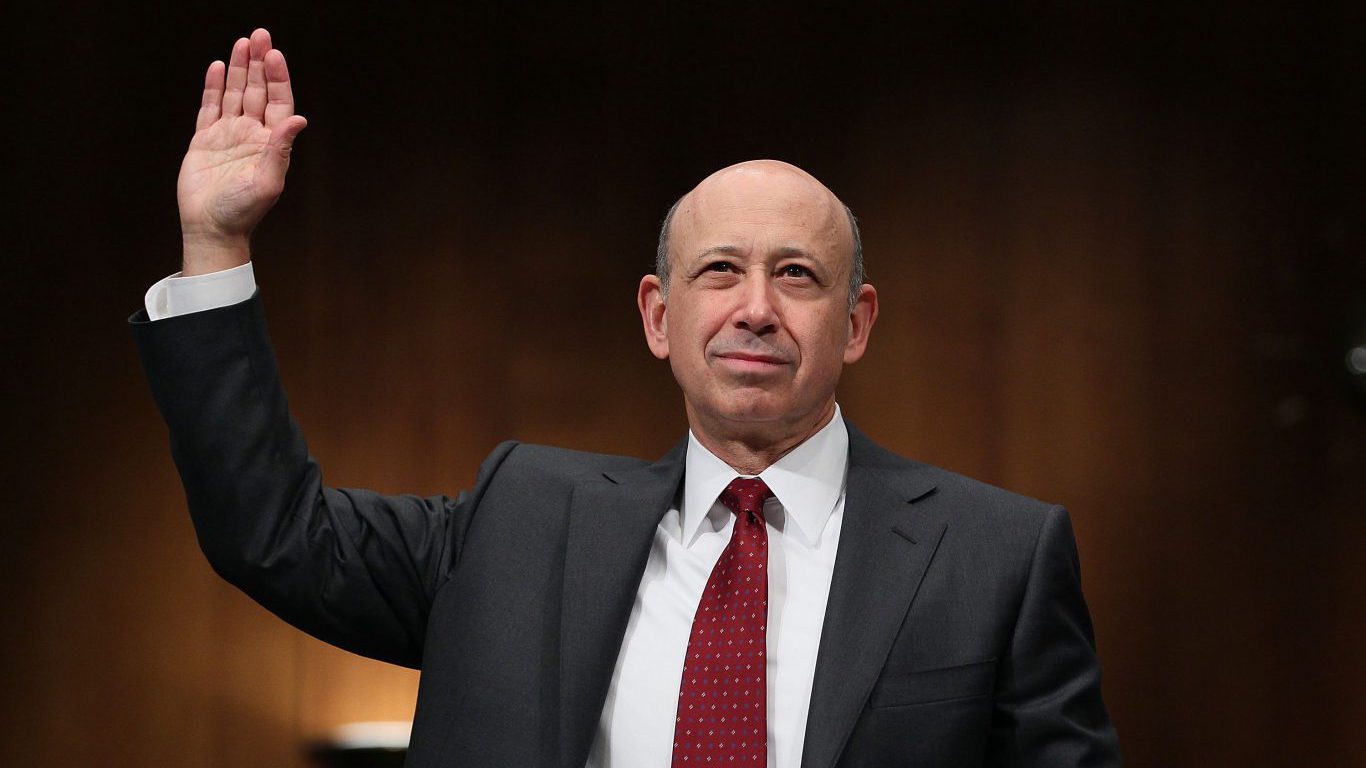
Goldman Sachs, the prestigious (some would say nefarious) investment bank that earned the nickname, “Great Vampire Squid” from journalist Matt Taibbi due to it being “wrapped around the face of humanity, relentlessly jamming its blood funnel into anything that smells like money”, has a presence on any financial platform where money can be made. Unsurprisingly, the lucrative BDC sector is one of them, and Goldman Sachs BDC, Inc. is its Goldman representative.
Similarly to its platform rivals, Goldman Sachs BDC engages in private corporate finance underwritings and originations of secured debt, both senior and junior, first in-last out unitranche debt, mezzanine debt, and, in limited quantities, equities. Candidates for Goldman Sachs BDC to invest anywhere between $10 million to $75 million in financing, are, by and large, US companies. Their annual EBITDA should be between $5 million and $75 million.
As one might expect, Goldman Sachs Group, Inc. (NYSE: GS) is the largest institutional shareholder of Goldman Sachs BDC at 5.81%, as of the end of 2023. Morgan Stanley (NYSE: MS) at 3.45% and Van Eck Associates, Corp. at 1.68% round out the top 3.
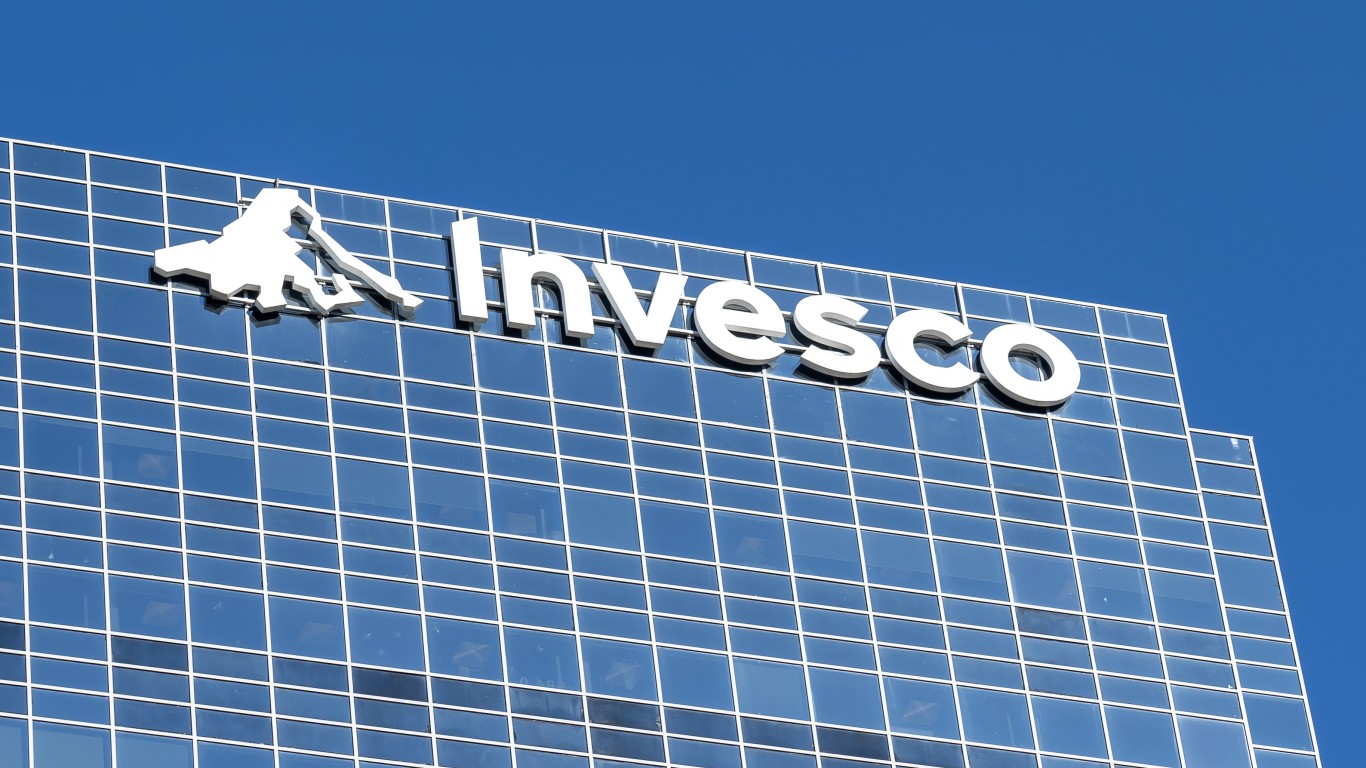
Stock #4 : Invesco Senior Income Trust (NYSE: VVR)
Fixed-income mutual funds often use benchmarks against which they will gauge the fund’s performance. In the case of Invesco Senior Income Trust, the benchmark in question is the Credit Suisse Leveraged Loan Index. With practically the entirety of its assets devoted to investing in the high-yield bond markets, the Atlanta, GA based fund has not missed any monthly dividend payments over the past 25 years.
As of the end of 2023, roughly 91% of the fund was in the bond market, with 5.77% in US stocks and 1% in foreign stocks. Within the bond portfolio, 99% were corporates, of which 40.87% were unrated, 31.63% were rated B, 16.02% were between B- and C-, and 10.26% were BB.
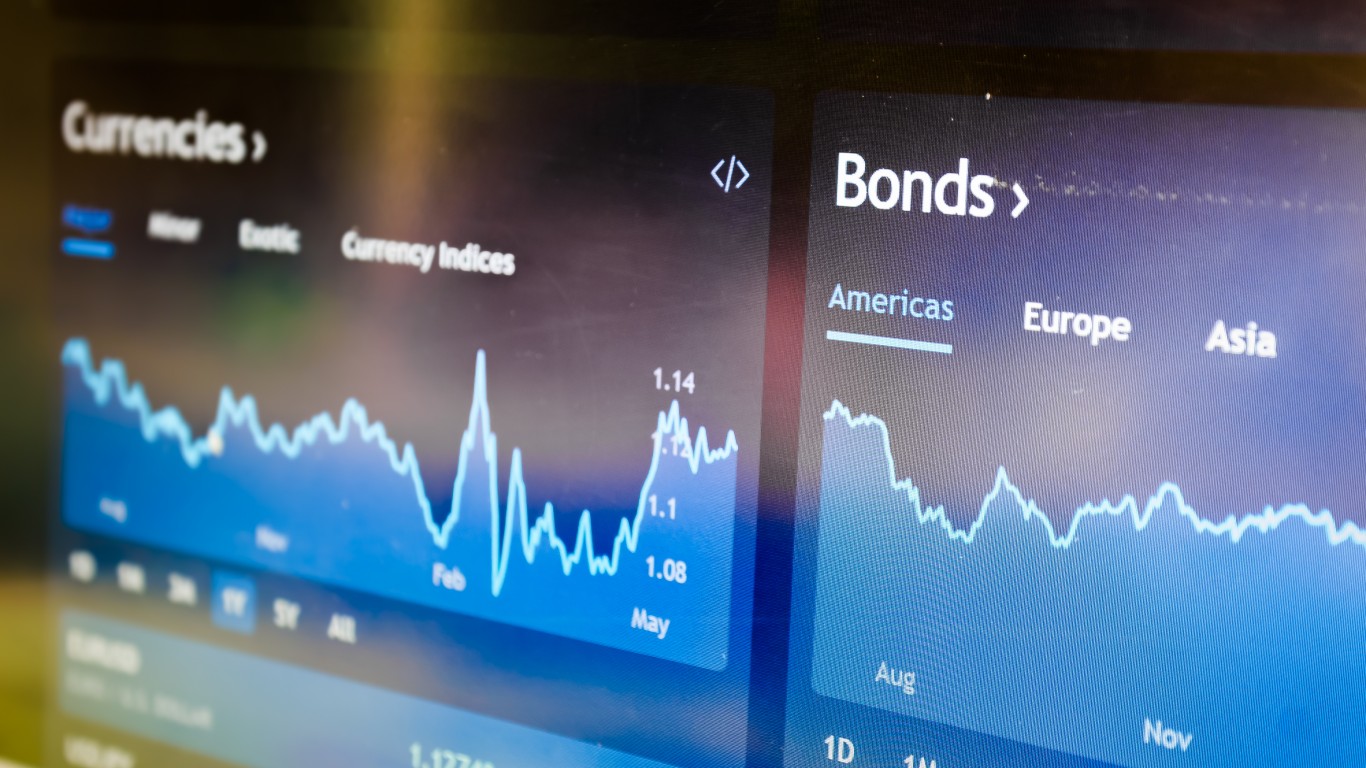
Stock #5 : PIMCO Income Strategy Fund (NYSE: PFL)
The Pacific Investment Management Company (PIMCO) is headquartered in Newport Beach, CA. Among its family of funds, the PIMCO Income Strategy Fund is interesting because it carries both long and short positions on bonds, which is somewhat unusual for a mutual fund focused on fixed income, since a short position can entail unlimited risk if liquidity issues prevent a quick short cover in the event the manager has bet in the wrong direction.
Within its $402 million AUM, the PIMCO Income Strategy Fund’s primary long positions are roughly 26% BBB, 18.47% AAA, 18.07% BB, 10.57% AA, and 9.92% B with a sector breakdown consisting of 34.5% corporates, 26.92% securitized and 26.64% government bonds. Although current long/short data was unavailable at the time of this writing, the fund had a -29.46% short position in the bond market as of September, 2022.

Stock #6 : Apollo Tactical Income Fund (NYSE: AIF)
Apollo Global Management, Inc. is a prestigious asset management company with various subsidiaries engaged in different financial sectors. The Apollo Tactical Income Fund approaches the high-yield debt markets from a dual private and public perspective.
Focusing on floating rate senior secured debt, which fluctuates based on a specified benchmark, not unlike a floating rate mortgage, Apollo Tactical Income Fund cites data provider Prequin Ltd.’s prediction of private credit markets growing to $2.8 trillion by 2028 as the rationale for getting into the sector with as much as 38-40% of its portfolio since Q4 2023.
As of the start of March, 2024, the fund’s portfolio held 75.9% in privately originated loans, 16.5% high-yield bonds, and 7.4% structured products. The three largest sector exposures in the portfolio are: Healthcare & Pharmaceutical – 16.1%, High Tech – 14.2%, and Banking, Finance & Real Estate with 9.3%.

Stock #7 : Horizon Technology Finance Corporation (NASDAQ: HRZN)
Horizon Technology Finance Corp. is a BDC with a focus on venture capital backed high-tech startups and development stage companies. Its primary interest sectors are: high technology, life science, healthcare technology, and sustainability.
Horizon’s debt financings can be up to $50 million per transaction, and in the form of fixed term, bridge, or special purpose loans with an elevated priority claim interest over equity shareholders or other lenders. Use of proceeds include: growth capital, acquisition, cash extension, and non dilutive equity funding augmentation.

Stock #8 : Ares Dynamic Credit Allocation Fund, Inc. (NYSE: ARDC)
Ares Capital Management is ranked 33 in the world by AUM. Its Ares Dynamic Credit Allocation Fund invests almost exclusively in US bonds. With $498 million in assets, the fund’s portfolio consists of short to medium maturity bonds, averaging 4.7 years, overall.
64.19% in the fund’s portfolio are corporate bonds and 33.40% are securitized loans. Of the bonds, 37.40% are rated B, 31.20% are rated BB, and 15.60% are unrated. The three largest individual holdings within the portfolio are:

Stock #9 : Clough Global Opportunities Fund (NYSE: GLO)
Headquartered in Boston, MA, Clough Capital Partner, LP is an asset management firm with closed end fund, ETFs, and hedge fund subsidiaries. The Clough Global Opportunities Fund is a closed end fund using quantitative and fundamental analysis for its equity selections and risk management analysis for its fixed-income picks, both investment grade as well as “junk” bonds.
As of Q4 2023, the portfolio was weighted 90.6% in equities with 13.4% in BBB and B-rated bonds, primarily between 3-5 year maturities. The top stock positions held were: Alphabet (NASDAQ: GOOG) – 6.86%, Microsoft (NASDAQ: MSFT) – 6.12%, and Amazon (NASDAQ: AMZN) – 3.80%.
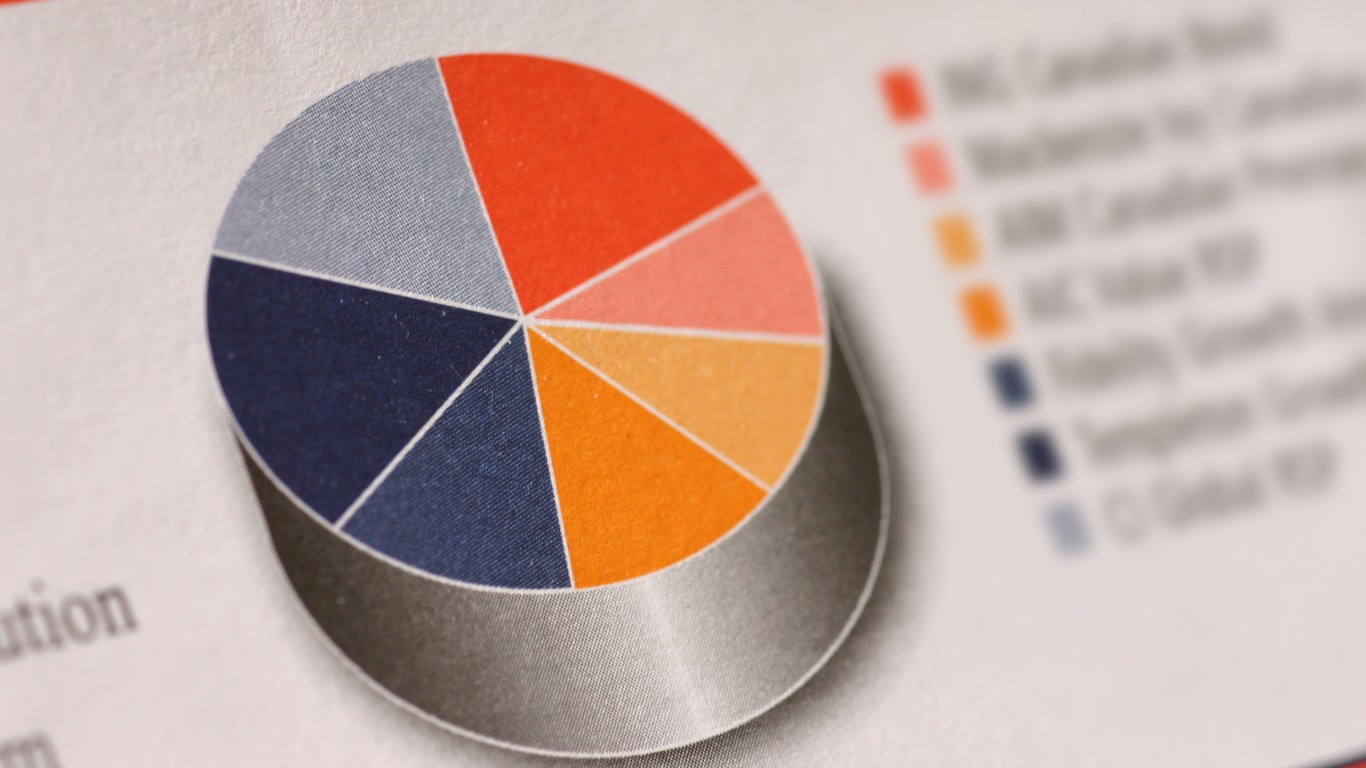
Stock #10 : First Trust Senior Floating Rate Income Fund II (NYSE: FCT)
The First Trust Senior Floating Rate Income Fund II is a closed-end mutual fund that invests a minimum of 80% of its portfolio in senior secured floating rate corporate loans. Based in Wheaton, IL, the fund gauges its performance against the S&P/LSTA Leveraged Loan Index.
As of March, 2024, 36.93% were rated B, 18.17% were B+, and 15.71% were B-. Average maturity was 4.37 years. The top issuers being held in the portfolio were: 1) Nexstar Broadcasting – 3.07%, 2) Assured Partners, Inc. – 2.77%, and 3) Clarivate Analytics PLC (Camelot) – 2.46%.
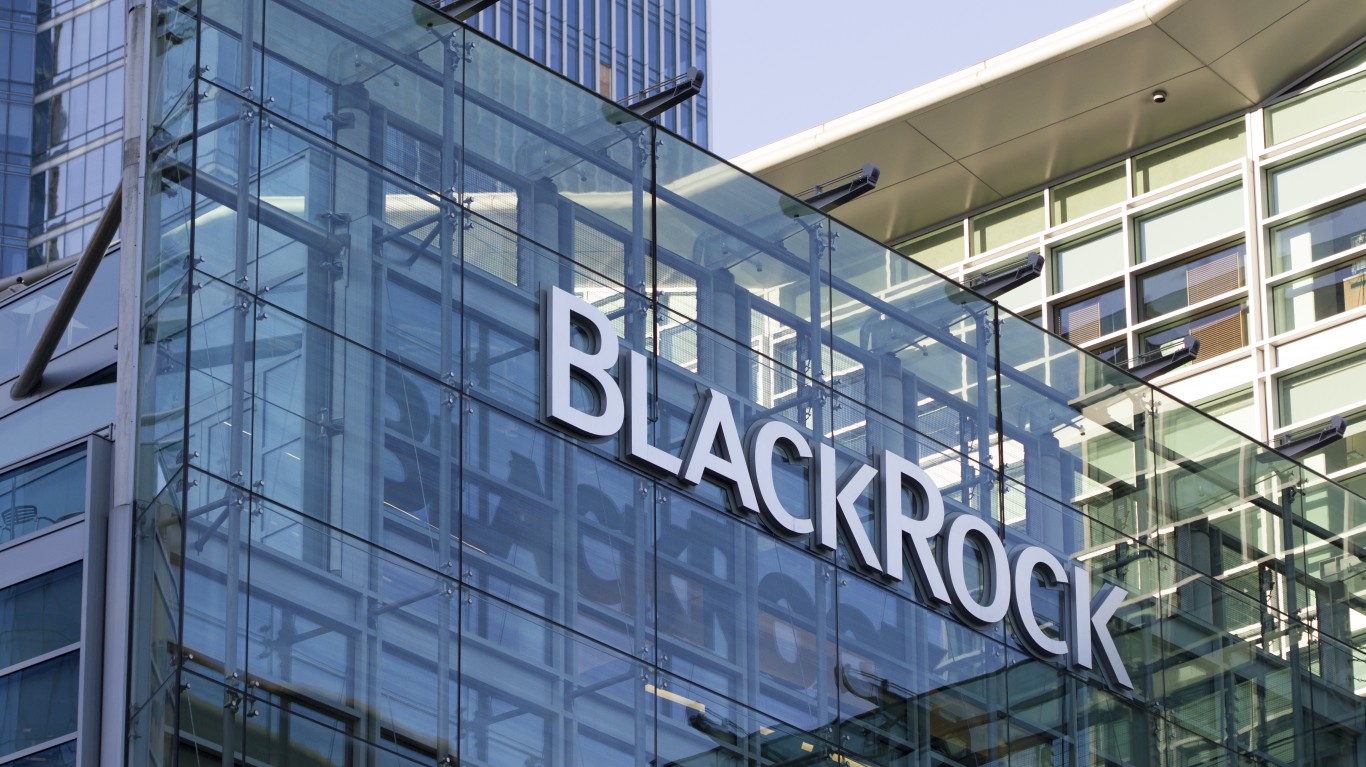
Stock #11 : BlackRock Multi-Sector Income Trust (NYSE: BIT)
As the world’s largest asset manager, BlackRock maintains a presence across every financial platform in an umbrella that contains dozens of subsidiaries. The BlackRock Multi-Sector Income Trust is a closed-end, fixed-income mutual fund devoted exclusively to debt and loan investments.
Although corporates occupy 62.4% of the portfolio and securitized debt accounts for 34.2%, the top 4 largest individual issuer holdings are in FNMAs, or Federal National Mortgage Association bonds.
Ratings-wise, 34.51% are rated B, 25.70% are BB, 15.30% are below B, and 14.95% are AA.

Stock #12 : Chimera Investment Corporation (NYSE: CIM)
Located in New York’s Rockefeller Center, adjacent to NBC Studios, Chimera Investment Corporation is a Real Estate Investment Trust (REIT) that invests solely in securitized mortgages and internally originated mortgage loans. As a registered REIT, Chimera pays out 90% of its profits as dividends to its shareholders.
As of the end of 2023, residential mortgage loans comprised 91% of Chimera’s portfolio. Chimera’s underwritings take the form of senior and subordinated notes. Chimera will sell the senior bonds and retain the subordinate bonds. It will usually also retain a call option in case there is a need to liquidate the original securitization trust to receive remaining collateral and then enact a refinancing and fresh securitization of that collateral for lower cost or increased leverage.
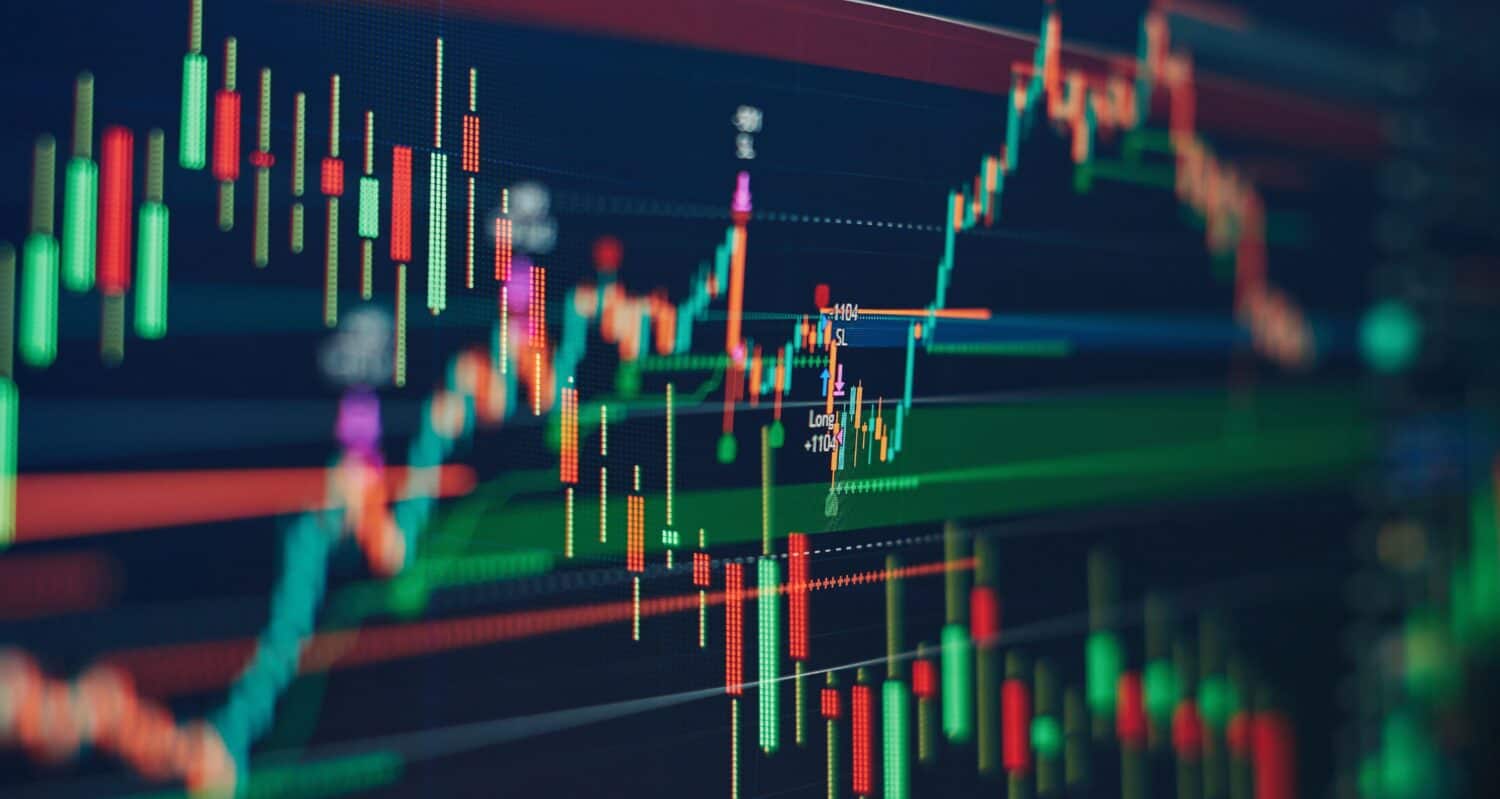
Stock #13 : Nuveen Core Equity Alpha Fund (NYSE: JCE)
Growth oriented mutual funds that also pay a double-digit dividend can be the best of both worlds for investors seeking income and capital appreciation. The Nuveen Core Equity Alpha Fund is a closed end fund that is designed exactly for that purpose. Using the S&P 500 Index as its benchmark, the Nuveen Core Equity Alpha Fund uses a trading predicated quantitative analysis methodology, combined with the use of options and futures to augment returns.
The top largest holdings in the portfolio as of the beginning of April 2024 are: 1) Microsoft – 7.8%, 2) Apple (NASDAQ: AAPL) – 6.4%, and 3) Nvidia Corp. (NASDAQ: NVDA) – 5.8%.
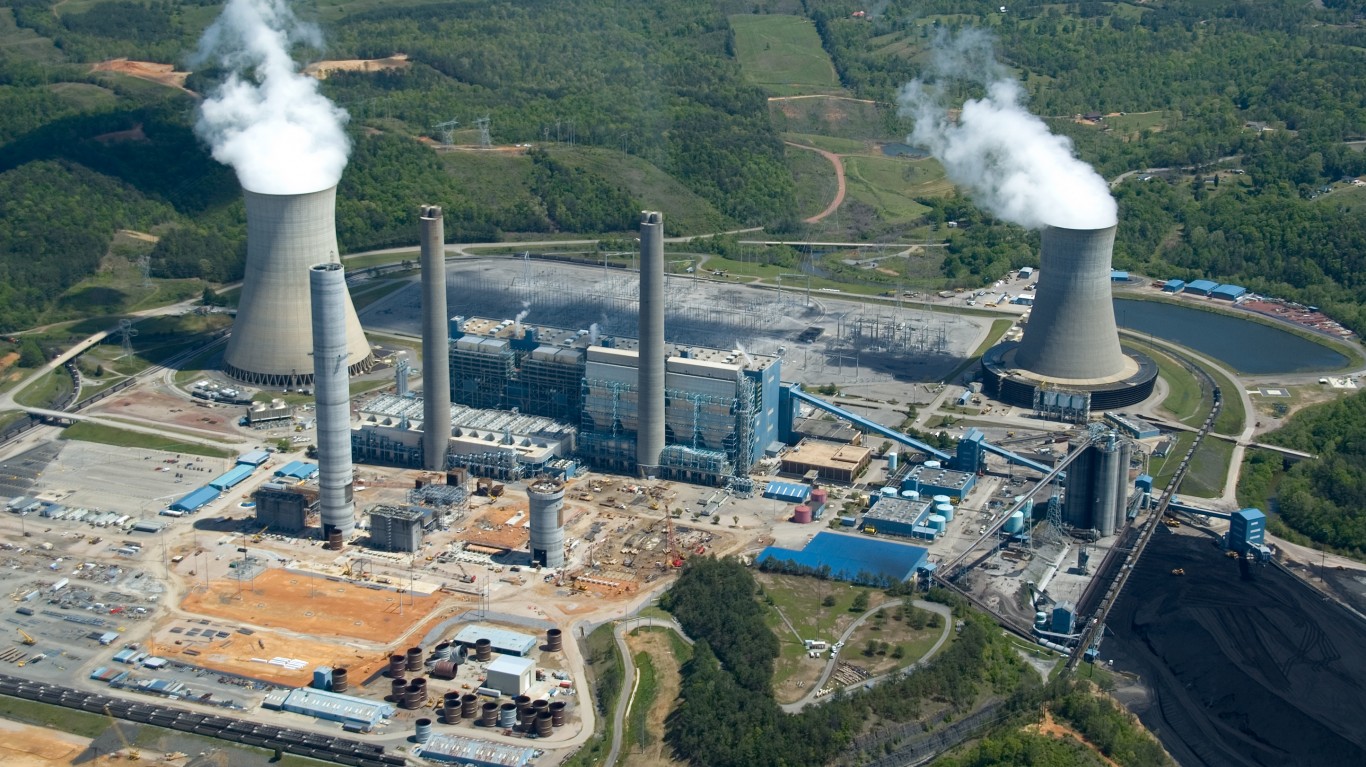
Mutual funds can be an excellent platform for diversified share investment in a particular industrial sector without risking the entire investment on a single stock. In the case of the closed- end Duff & Phelps Utility and Infrastructure Fund, this can be a good entry for investors interested in the global utilities and infrastructure market.
Duff & Phelps defines utilities and infrastructure to encompass companies dealing with: electric, gas, water, telecommunications, midstream energy, toll roads, bridges, tunnels, highways, airports, seaports, and railroads.
As of February 2024, the primary portfolio allocation was: 63.4% utilities, 25.4% midstream, and 6.5% infrastructure, with 85.3% in US companies, 3.1% Australian, and 2.8% German. The top three largest holdings were: 1) NextEra Energy (NYSE: NEE) – 4.6%, 2) Duke Energy (NYSE: DUK) – 4.4%, and 3) MPLX LP (NYSE: MPLX) – 4.0%.

Stock #15 : Voya Global Equity Dividend and Premium Opportunity Fund (NYSE: IGD)
Located in Scottsdale, AZ, the Voya Global Equity Dividend and Premium Opportunity Fund is a closed-end mutual fund that invests in the global equity market with attention to high dividends. As a global fund, it will use a covered call writing strategy against individual stocks, ETFs, or indices to enhance returns. It will also use some forex hedging strategies to mitigate currency risk in its foreign stock holdings.
As of April, 2024, the fund’s top sector weightings are in financials – 22.31%, healthcare – 15.01%, and industrials – 13.91%, with 69.41% US companies, 6.92%, Japanese, and 3.85% British.
The fund’s top three largest holdings are: 1) Johnson & Johnson (NYSE: JNJ) – 1.73%, 2) Merck & Co., Inc. (NYSE: MRK) – 1.61%, and 3) AbbVie, Inc. (NYSE: ABBV) – 1.54%.
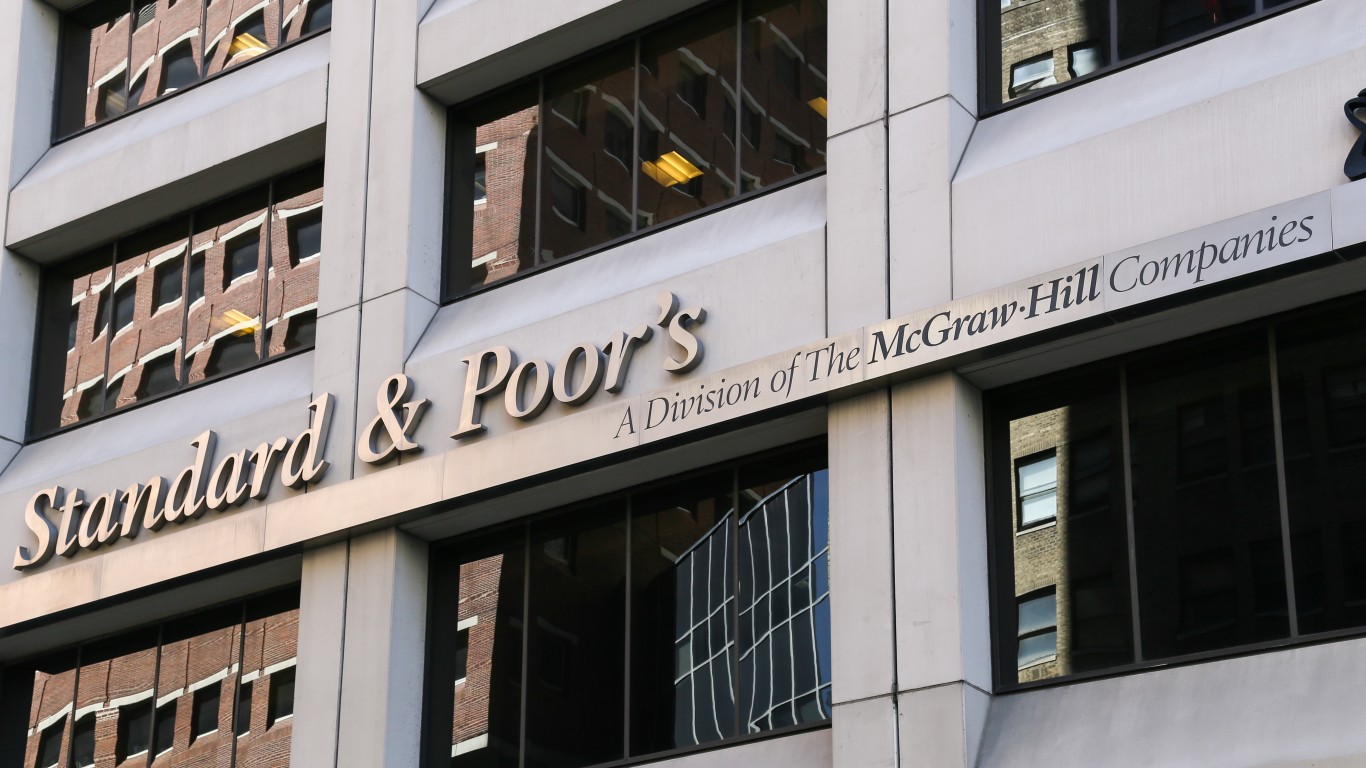
Stock #16 : Cohen & Steers Tax-Advantaged Preferred Securities and Income Fund (NYSE: PTA)
One drawback about the majority of high-yield mutual funds based on fixed-income for its returns is that the underlying securities are often below investment grade, or “junk” rated. The monthly dividend paying Cohen & Steers Tax-Advantaged Preferred Securities and Income Fund is one of those exceptions.
Using a combination of select preferred stocks that pay a coupon dividend but give the holder an option to convert to common stock if market conditions favor a swap along with investment grade corporate bonds no lower than BBB-, the New York based fund is able to deliver close to double digit yields while maintaining an investment grade portfolio.

Stock #17 : Golub Capital BDC Inc. (NASDAQ: GBDC)
As mentioned earlier in this article, the private debt market is exploding and expected to top $2.8 trillion in the next 4 years. Golub Capital BDC Inc. has been at the forefront of this trend. In 2023, Golub Capital won all three Lender of the Year, Senior Lender of the Year, and BDC Manager of the Year in the Americas awards from Private Debt Investor (PDI), and has won 24 PDI awards since 2013.
One of the keys to Golub’s success are its One-Stop Loans, which are secured by priority first liens on the issuer’s assets. They comprise 86% of Golub’s portfolio, so its defaults are abnormally low for the industry. Another fact to consider is that Golub raised its dividend twice in 2023, so business has been good for them.
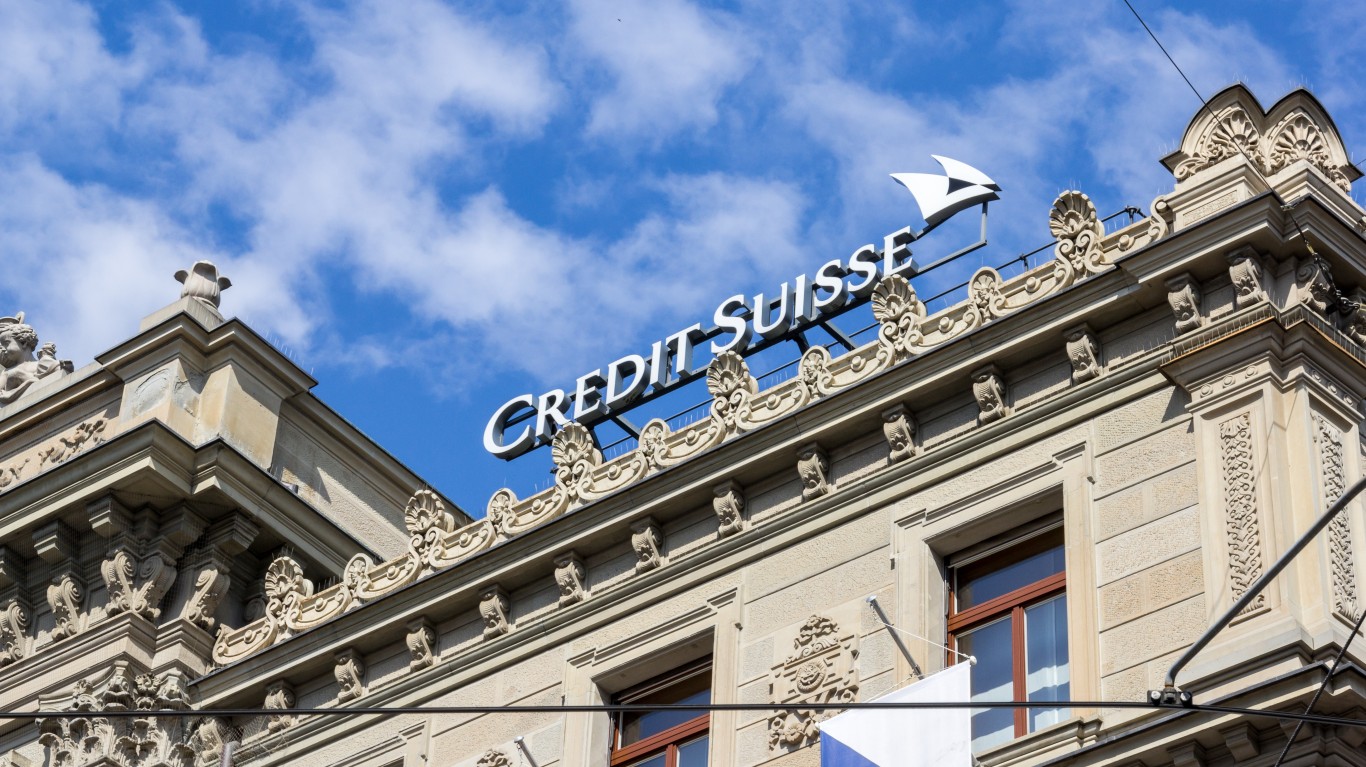
Stock #18 : Credit Suisse High Yield Fund, Inc. (NYSE: DHY)
The fall of Credit Suisse, thanks to scandals, massive losses, and fines related to its support of Archegos and its $5.5 billion in trading losses, shattered the long-standing myth of the invulnerable Swiss bank. Although Credit Suisse has since been acquired by UBS, the Credit Suisse name still lives on with several of its branded mutual funds. The Credit Suisse High Yield Fund is one of them.
Using the Bank of America Merrill Lynch High Yield Master II Constrained Index as its benchmark, the fund primarily invests in junk bonds with substantive yields and relatively short maturities of under 5 years.
As of the start of April, 2024, the portfolio held 90.27% corporates, of which 38% were rated BB, 35.18% were B, and a5.87% were below B.
Naturally, one should monitor their portfolio on a regular basis in case there are any news events or market circumstances that can affect a stock price or its dividend adversely. For additional dividend stock selections, 247 Wall St. also has this and several other suggestions.
| Name: | Yield: | Annual Passive Dividend Income: |
| RiverNorth Opportunities Fund (NYSE: RIV) | 15.43% | $154.30 |
| Prospect Capital Corporation (NASDAQ:PSEC) | 13.36% | 133.60 |
| Goldman Sachs BDC, Inc. (NYSE: GSBD) | 12.10% | $121.00 |
| Invesco Senior Income Trust (NYSE: VVR) | 12.03% | $120.30 |
| PIMCO Income Strategy Fund (NYSE: PFL) | 11.94% | $119.40 |
| Apollo Tactical Income Fund (NYSE: AIF) | 11.80% | $118.00 |
| Horizon Technology Finance Corporation (NASDAQ: HRZN) | 11.78% | $117.80 |
| Ares Dynamic Credit Allocation Fund, Inc. (NYSE: ARDC) | 11.64% | $116.40 |
| Clough Global Opportunities Fund (NYSE: GLO) | 11.50% | $115.00 |
| First Trust Senior Floating Rate Income Fund II (NYSE: FCT) | 11.43% | $114.30 |
| BlackRock Multi-Sector Income Trust (NYSE: BIT) | 10.81% | $108.10 |
| Chimera Investment Corporation (NYSE: CIM) | 10.78% | $107.80 |
| Nuveen Core Equity Alpha Fund (NYSE: JCE) | 10.47% | $104.70 |
| Duff & Phelps Utility and Infrastructure Fund (NYSE: DPG) | 10.06% | $100.60 |
| Voya Global Equity Dividend and Premium Opportunity Fund (NYSE: IGD) | 9.52% | $95.20 |
| Cohen & Steers Tax-Advantaged Preferred Securities and Income Fund (NYSE: PTA) | 9.50% | $95.00 |
| Golub Capital BDC Inc. (NASDAQ: GBDC) | 9.43% | $94.30 |
| Credit Suisse High Yield Fund, Inc. (NYSE: DHY) | 9.30% | $94.30 |
| Total: | $2,030.10 |
After two decades of reviewing financial products I haven’t seen anything like this. Credit card companies are at war, handing out free rewards and benefits to win the best customers.
A good cash back card can be worth thousands of dollars a year in free money, not to mention other perks like travel, insurance, and access to fancy lounges.
Our top pick today pays up to 5% cash back, a $200 bonus on top, and $0 annual fee. Click here to apply before they stop offering rewards this generous.
Flywheel Publishing has partnered with CardRatings for our coverage of credit card products. Flywheel Publishing and CardRatings may receive a commission from card issuers.
Thank you for reading! Have some feedback for us?
Contact the 24/7 Wall St. editorial team.